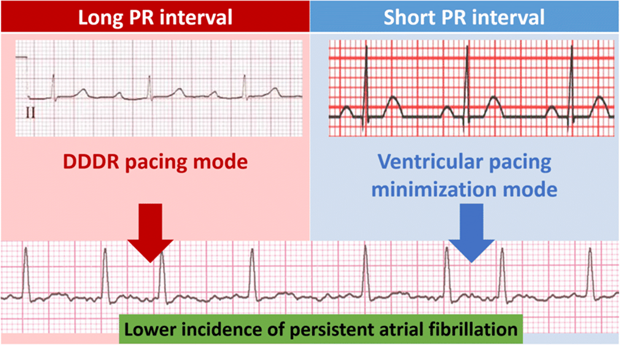A nurse is providing teaching to a client who is receiving opioids for pain management.
Which of the following information should the nurse include in the teaching?
"Itching indicates you are having an allergic reaction to the medication.".
"Monitor urinary output for retention.".
"Restrict fluid intake if you experience constipation.".
"Avoid taking antiemetics with the medication.".
The Correct Answer is B
“Monitor urinary output for retention.” Urinary retention is a common side effect of opioid use and should be monitored.
Choice A is not correct because itching can be a side effect of opioids and does not necessarily indicate an allergic reaction.
Choice C is not correct because restricting fluid intake can worsen constipation.
Choice D is not correct because antiemetics may be prescribed to manage nausea and vomiting, which are common side effects of opioids.
Nursing Test Bank
Naxlex Comprehensive Predictor Exams
Related Questions
Correct Answer is A
Explanation

First-degree heart block is a type of atrioventricular (AV) block that involves the consistent prolongation of the PR interval (defined as >0.20 seconds) due to delayed conduction via the atrioventricular node.
This is seen on an ECG as a PR interval greater than 200 ms in length.
Choice B: Nondiscernible P waves are not an answer because it is not mentioned as a characteristic of first-degree heart block in my sources.
Choice C: More P waves than QRS complexes is not an answer because it is not mentioned as a characteristic of first-degree heart block in my sources.
Choice D: No correlation between P and QRS waves is not an answer because it is not mentioned as a characteristic of first-degree heart block in my sources.
Correct Answer is A
Explanation
Place two-bed pillows between the legs when in bed.
To prevent hip dislocation after total hip arthroplasty, the nurse should place two-bed pillows between the client’s legs when in bed.
This helps maintain proper alignment and prevent the hip from dislocating.
Choice B is incorrect because leaning forward when attempting to stand can increase the risk of hip dislocation.
Choice C is incorrect because removing the wedge device when turning can increase the risk of hip dislocation.
Choice D is incorrect because elevating the knees higher than the hips when sitting can increase the risk of hip dislocation.
Whether you are a student looking to ace your exams or a practicing nurse seeking to enhance your expertise , our nursing education contents will empower you with the confidence and competence to make a difference in the lives of patients and become a respected leader in the healthcare field.
Visit Naxlex, invest in your future and unlock endless possibilities with our unparalleled nursing education contents today
Report Wrong Answer on the Current Question
Do you disagree with the answer? If yes, what is your expected answer? Explain.
Kindly be descriptive with the issue you are facing.
